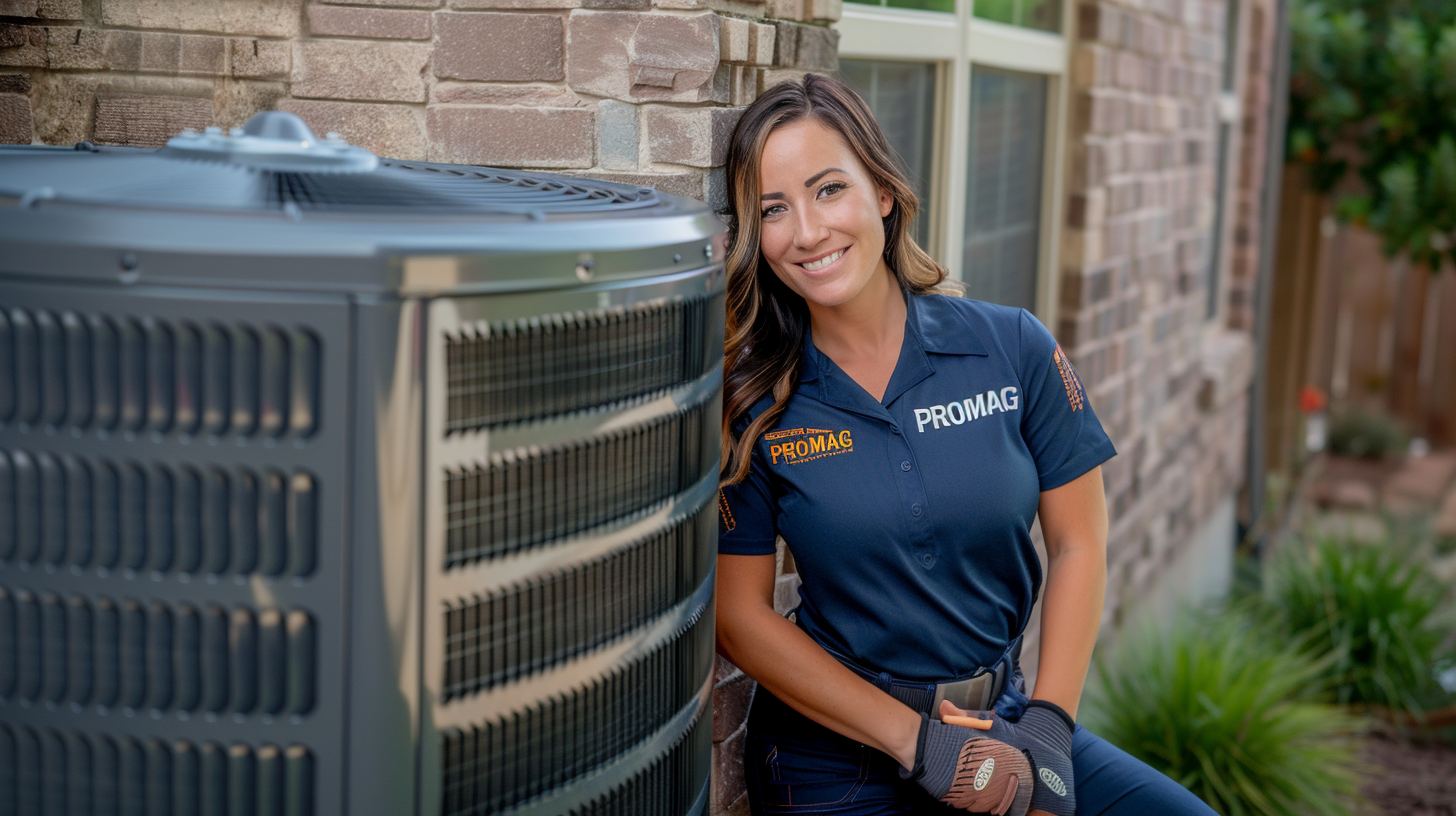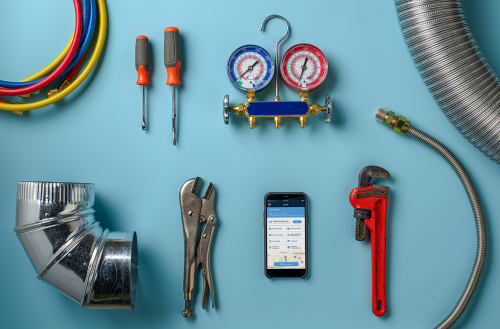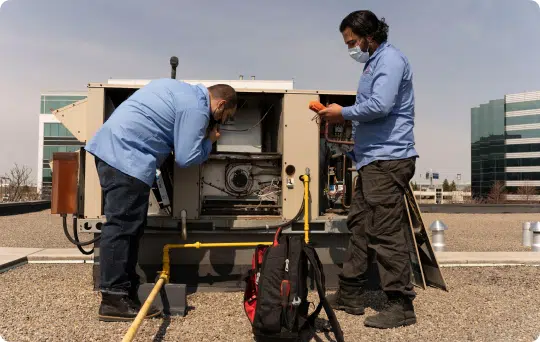Choose DMAKS HVAC for Reliable and Professional HVAC Solutions.
Choose DMAKS HVAC for Reliable and Professional HVAC Solutions.
Blog Article
Energy-Efficient Cooling And Heating Systems to Save Money On Energy Expenses
As energy expenses remain to climb, the relevance of energy-efficient heating and cooling systems becomes significantly evident. These systems not just guarantee substantial cost savings on utility bills yet likewise add to a much more lasting future by decreasing power usage. With different choices readily available, consisting of geothermal heatpump and ductless mini-splits, building proprietors deal with a wide range of options that can enhance convenience and air high quality. However, recognizing the key attributes and upkeep requirements is necessary to maximizing these advantages. What elements should be focused on when choosing the right system for your demands?
Advantages of Energy-Efficient Heating And Cooling Systems
Energy-efficient heating and cooling systems provide countless benefits that extend past mere price savings. One considerable advantage is the minimized environmental impact. By consuming much less energy, these systems add to lower greenhouse gas exhausts, helping to deal with environment change and promote sustainability. This straightens with increasing societal demands for environmentally friendly methods in household and commercial settings.
Furthermore, energy-efficient a/c systems frequently supply boosted convenience degrees. Much of these systems include innovative modern technology that permits for better temperature level control and improved air quality (DMAKS HVAC). This results in a much healthier indoor atmosphere, which is especially important for people with allergic reactions or respiratory system problems
Additionally, investing in energy-efficient a/c systems can boost home value. As more consumers focus on power effectiveness, homes and buildings geared up with these systems may attract greater quotes in the realty market.
Kinds Of Energy-Efficient HVAC Options
How can house owners and companies select one of the most ideal energy-efficient a/c choices for their needs? The marketplace uses a range of energy-efficient HVAC systems, each designed to boost comfort while minimizing power usage.
One choice is the variable refrigerant circulation (VRF) system, which successfully regulates the temperature level in multiple zones within a building. This system adjusts its cooling agent circulation to match the wanted temperature level, resulting in substantial energy savings.
One more popular option is geothermal heatpump, which utilize the planet's secure temperature to warmth and trendy areas. By transferring warm to and from the ground, these systems demonstrate remarkable effectiveness, specifically in moderate climates.
Additionally, ductless mini-split systems provide an energy-efficient option for homes lacking ductwork. These systems enable zone-specific cooling and heating, lowering energy waste in empty locations.
Lastly, high-efficiency furnaces and air conditioning unit, with advanced SEER and AFUE ratings, provide trusted environment control while consuming much less energy than standard versions. By assessing these alternatives, house owners and organizations can choose a HVAC system customized to their particular needs and power efficiency goals.
Secret Attributes to Think About

Following, investigate the type of compressor made use of in the system. DMAKS HVAC. Variable-speed compressors can change their outcome to match the home heating or cooling need, resulting in improved comfort and power cost savings contrasted to single-speed versions. Furthermore, search for systems outfitted with clever thermostats that provide programmable settings and remote gain access to, allowing for better control over power intake
One more important attribute is the system's air purification capability. High-efficiency filters can go now improve indoor air quality and minimize power consumption by ensuring the system runs effectively. Think about the type of cooling agent used; modern-day systems typically use eco-friendly refrigerants that have a lower ecological effect.
Lastly, ensure that the system is compatible with zoning technology, which permits customized temperature control in different locations of your home, improving convenience while reducing energy usage.
Tips for Picking the Right System


Following, think about energy performance ratings, especially the Seasonal Power Effectiveness Ratio (SEER) for cooling down systems and the Yearly Gas Utilization Performance (AFUE) for heater. Greater rankings indicate better effectiveness, which can lead to substantial financial savings on energy expenses with time.
Additionally, evaluate read the kind of heating and cooling system that ideal matches your way of life and budget plan. Options include central air, ductless mini-splits, and heatpump, each with its own collection of benefits and downsides.
Do not forget the relevance of correct setup and sizing; an incorrectly sized system can result in inefficiencies and boosted wear. Last but not least, seek advice from a professional heating and cooling service provider to acquire professional recommendations customized to your home's special requirements. This comprehensive method will certainly make sure that you choose an energy-efficient a/c system that fulfills your needs and budget plan effectively.
Upkeep for Ideal Effectiveness
Once the right a/c system remains in place, ongoing maintenance becomes key to making certain optimum efficiency and longevity. A properly maintained system operates better, causing reduced power intake and decreased utility costs. Regular examinations and tune-ups must be set up a minimum of two times a year-- as soon as before the air conditioning period and once prior to the home heating season.

Homeowners must additionally be watchful regarding checking their heating and cooling system's efficiency. Unusual noises, fluctuating temperature levels, or boosted energy bills can show underlying problems that require immediate focus. By attending to these worries immediately, house owners can avoid costly repair services and extend the life expectancy of their systems.
Buying a maintenance plan with a certified professional not just enhances performance yet additionally supplies tranquility of mind, knowing that the system is running at its best. DMAKS HVAC. Normal maintenance is consequently necessary for maintaining power performance and decreasing overall functional prices
Conclusion
To conclude, energy-efficient cooling and heating systems offer a viable solution for minimizing energy costs while improving convenience and air quality. By integrating innovative modern technologies and alternatives such as geothermal heat pumps and ductless mini-splits, residential property proprietors can achieve substantial power financial savings and add to environmental sustainability. Cautious consideration of system attributes and recurring upkeep better makes sure optimal efficiency, making energy-efficient systems a sensible financial investment for both financial and eco-friendly advantages.
Report this page